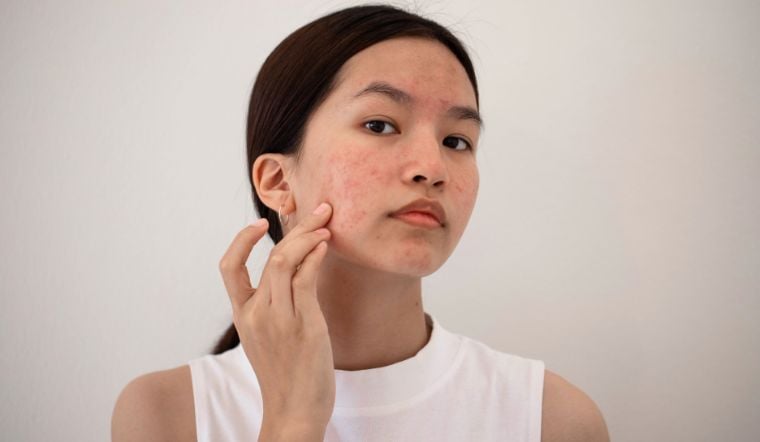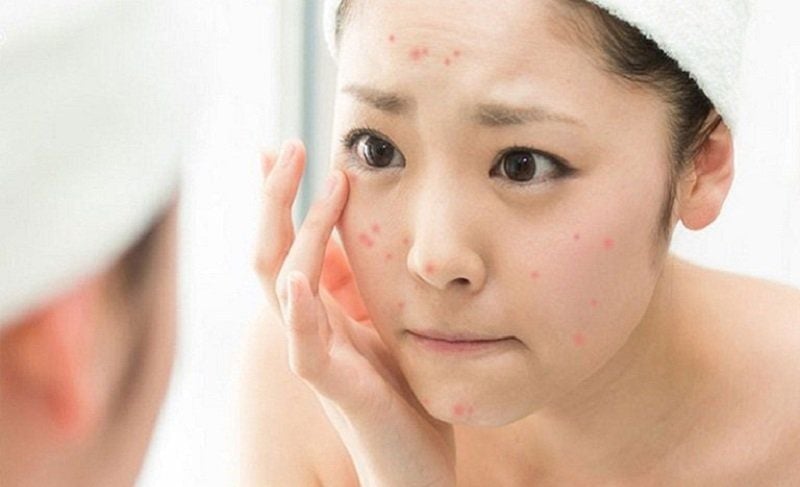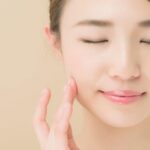Improper Skin Care
Inadequate skin cleansing can lead to acne formation. When dirt, excess oil, and makeup are not thoroughly removed, they clog pores and cause breakouts. Using unsuitable cosmetics for your skin type can also irritate and exacerbate acne.

Ensure you cleanse your skin properly to prevent acne.
To address this, wash your face at least twice daily with a cleanser suited to your skin type. Don’t forget to remove your makeup at night with a gentle cleanser. Opt for products with mild formulations that won’t clog your pores.
Overactive Sebum Production
Excess sebum, combined with dirt, dead skin cells, and bacteria, can clog pores and create an ideal environment for acne to thrive. Acne often appears in areas with higher sebum production, such as the T-zone (forehead, nose, and chin).
To combat this, incorporate oil-control products into your skincare routine, such as gel-based cleansers or face washes. Steer clear of harsh, astringent products as they can strip your skin of its natural oils, prompting your sebaceous glands to produce even more sebum.

Manage sebum production with suitable skincare products.
Unbalanced Diet
A diet high in glycemic index foods, such as fast food, processed snacks, sweets, and dairy, can elevate insulin levels in the body. This, in turn, stimulates sebum production, leading to clogged pores and acne breakouts.
To minimize acne caused by dietary factors, increase your intake of green vegetables, fruits, omega-3 rich foods, and vitamins A and C.
Hormonal Changes
Hormones play a significant role in acne development, especially during puberty, menstrual cycles, pregnancy, or when taking birth control pills. Androgens, for instance, can stimulate sebum production, increasing the likelihood of clogged pores and acne.
Stress
Stress is an undeniable factor in acne formation. When the body undergoes stress, it releases the hormone cortisol, which induces inflammation and stimulates sebum production, thereby increasing the chances of acne breakouts.






































